Spy Kids 2: The Island of Lost Dreams
- 5.3
- Family
- 2002
- 1h 41m
- 14+
Carmen (Alexa PenaVega) and Juni Cortez (Daryl Sabara) return in Spy Kids 2: The Island of Lost Dreams, where they embark on a new mission to recover a powerful stolen device known as the Transmooker. Their adventure takes them to a mysterious island filled with bizarre creatures, hidden dangers, and unexpected twists. Facing rival spy kids, discovering family secrets, and encountering the eccentric scientist Romero (Steve Buscemi), the siblings must once again prove their skills and save the world. This sequel expands the Spy Kids universe with even more action, humor, and imaginative storytelling.

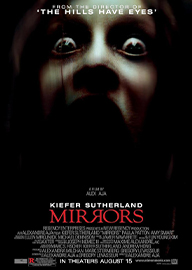
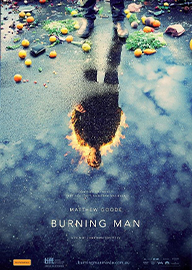
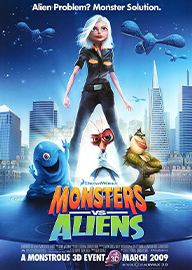
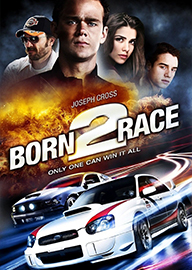



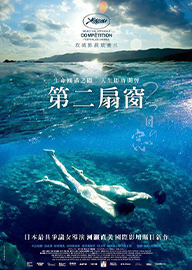

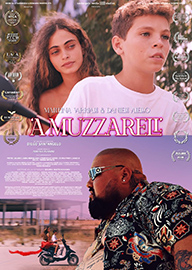


Comments
0Reviews
0Summery
1Please sign in to comment.
Please sign in to review.
Spy Kids 2: The Island of Lost Dreams (2002) builds on the success of its predecessor, delivering an even more ambitious, action-packed, and visually spectacular adventure. Directed by Robert Rodriguez, the sequel expands the world of espionage by introducing new villains, more high-tech gadgets, and a breathtaking setting filled with mythical creatures and genetic experiments gone wrong. What sets Spy Kids 2 apart from many sequels is its ability to maintain the charm of the original while raising the stakes with a more complex plot and deeper themes. The film explores not just the excitement of being a young spy but also the responsibilities and ethical dilemmas that come with it. With a blend of humor, action, and heart, it cements itself as a worthy continuation of the Spy Kids saga.
At the heart of the story are Carmen and Juni Cortez, now full-fledged agents of the OSS (Organization of Super Spies). Their newfound status as elite spies, however, is quickly challenged when they encounter Gary and Gerti Giggles, their arrogant rivals who come from a privileged spy family. The tension between the Cortez siblings and the Giggles duo adds an interesting dynamic, as Carmen and Juni must prove that their skills, intelligence, and teamwork are what truly define a great spy—not just high-tech gear or family connections. This rivalry sets the stage for a gripping competition when a powerful and mysterious artifact known as the Transmooker device goes missing, threatening global security. Tasked with recovering it, Carmen and Juni embark on a perilous mission to an uncharted island where they encounter bizarre creatures, unexpected allies, and the challenges of working independently from the safety net of the OSS.
One of the most striking elements of Spy Kids 2 is its breathtaking setting. The island, inhabited by strange hybrid creatures created by the eccentric scientist Romero (Steve Buscemi), serves as a visually stunning backdrop for the film’s adventure. From oversized dragonflies to two-headed animals, the island is a paradise of genetic anomalies, blending elements of science fiction and fantasy. Unlike the sleek, futuristic locations of the first film, the untamed wilderness of this new environment forces Carmen and Juni to rely more on their instincts and problem-solving skills rather than just their gadgets. This shift in setting reflects their growth as spies—where once they were reliant on technology, now they must think critically and adapt to unpredictable challenges. The island’s dangers also serve as a metaphor for their transition from childhood to maturity, where the real world does not always come with safety nets or clear instructions.
Beyond the thrilling spy action and stunning visuals, Spy Kids 2 delves into deeper themes that resonate with both children and adults. The film explores issues of trust, sibling dynamics, and personal responsibility, making it more than just a mindless action flick. Carmen and Juni’s relationship is tested as they navigate the pressures of their missions and personal ambitions. Carmen, in particular, takes on a leadership role, showcasing her intelligence and resilience, while Juni struggles with feelings of self-doubt and the weight of expectations. Their growth as individuals and as a team is one of the film’s strongest aspects, making their journey not just exciting but also emotionally engaging. Additionally, the film introduces a subplot involving their grandfather, played by Ricardo Montalbán, who brings a touching generational perspective to the story. His wisdom and experience add a heartfelt dimension to the film, reinforcing the idea that family support and legacy play a crucial role in shaping one’s identity.
The humor in Spy Kids 2 is sharper and more refined, thanks in part to a more confident script that balances comedy with adventure. The villains, particularly the Giggles family and the bumbling OSS agents, provide plenty of comedic moments, but the film also plays with absurdity in a way that feels fresh and inventive. Steve Buscemi’s portrayal of Romero, a paranoid scientist terrified of his own creations, adds an unexpected layer of depth and humor. His line, “Do you think God stays in heaven because He too lives in fear of what He’s created?” is surprisingly philosophical for a family film, offering a moment of introspection amidst the action. This blend of humor, intelligence, and heart is what makes Spy Kids 2 stand out—it refuses to talk down to its audience and instead offers a narrative that is both entertaining and thought-provoking.
Ultimately, Spy Kids 2: The Island of Lost Dreams successfully builds upon the foundation laid by its predecessor while pushing the franchise into new and exciting directions. The expanded world, deeper character development, and stunning visual effects make it a worthy sequel that delivers thrills, laughs, and heart in equal measure. By focusing not just on action but also on themes of personal growth, family legacy, and the ethics of power, the film elevates itself beyond a simple children’s adventure movie. Even years after its release, Spy Kids 2 remains a beloved classic that continues to inspire young audiences with its message of courage, intelligence, and the importance of family.